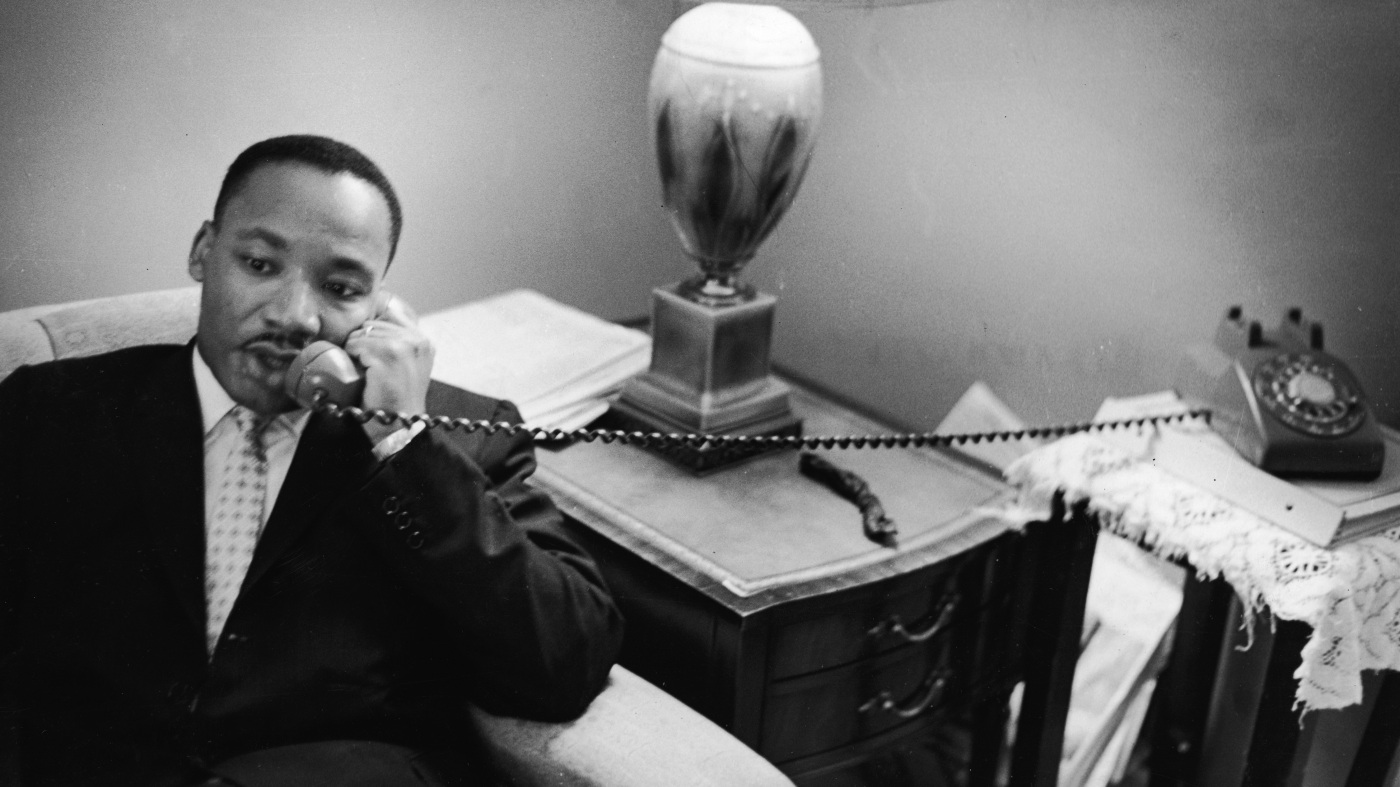College students say Trump administration’s crackdown on activism incites fear : NPR
On campuses nationwide, students are saying that the Trump administration’s efforts to crack down on antisemitism have caused a chilling effect on speech and political activity.
AILSA CHANG, HOST:
College can be a complicated time for students, but, you know, over the past few weeks, the mood on many campuses has grown dark as the Trump administration cracks down on pro-Palestinian activism. Some students have had visas revoked. There have also been several high-profile arrests. And as NPR’s Elena Moore reports, it’s left many students feeling silenced and fearful.
ELENA MOORE, BYLINE: For more than two weeks last spring, Cornell University was home to a student encampment. Dozens slept in tents on the quad to protest Israel’s war in Gaza. Sam, a Ph.D. student on a visa, visited the encampment daily. She has to go by that nickname because she’s fearful of how she might be treated by immigration authorities if targeted for deportation.
SAM: It’s actually one of my most beautiful memories in Ithaca because the supportive and accepting and diverse environment that we had.
MOORE: Cornell’s encampment was part of a wave of demonstrations at schools around the country, calling on universities to divest from Israel. Students say these protests were largely peaceful, but they’re now under new scrutiny as part of a policy the Trump administration says is aimed at eliminating antisemitism from American campuses. It’s made Sam worried about her safety.
SAM: A huge part of my time that I used to dedicate to work, to my projects, to organizing – I’ve had to move it towards preventive actions.
MOORE: Now when she picks out her clothes each morning, Sam asks herself if they’re comfortable enough to wear if she is arrested. Not being able to share her beliefs as openly as she used to upsets her.
SAM: I have to hide my name as if I was a criminal who has done, I don’t know, something that needs a cover up. It makes me mad because this is who I am.
MOORE: In the past few weeks, Sam has watched other student protesters, like Mahmoud Khalil, a graduate student at Columbia University, targeted for deportation by the administration. Khalil was a legal permanent resident. Others, like Tufts University Ph.D. student Rumeysa Ozturk, was here on a visa. Secretary of State Marco Rubio has defended the arrests.
(SOUNDBITE OF ARCHIVED RECORDING)
MARCO RUBIO: We are not going to be importing activists into the United States. They’re here to study. They’re here to go to class. They’re not here to lead activist movements that are disruptive and undermine the – our universities.
MOORE: Rubio has said he’s revoked hundreds of visas, including many for students. The administration argues they engaged in antisemitic harassment or violence. And while some Jewish students did report feeling unsafe during the protests, students like Sam, who backed the demonstrations, dispute allegations of discrimination. They say the administration’s actions are an attack on free speech that’s had a chilling effect for some on campus.
UNIDENTIFIED STUDENT: We’ve seen a lot less attendance from international students. Even, like, some organizers – they had to quit because of just the amount of potential risk that’s involved.
MOORE: That’s an undergraduate at the University of Minnesota Twin Cities. He’s a U.S. citizen, but chose to speak anonymously. He’s of Palestinian descent and worries about the ability to visit family abroad. He says the administration’s crackdown has caused organizers to take more precautions when speaking out, like advising international students not to lead demonstrations.
UNIDENTIFIED STUDENT: We try to have our citizens always do the speeches, always be the ones that are planning it ’cause we have the least risk at the moment. So yeah, we definitely advise our international students to stay away for now.
MOORE: Back at Cornell, undergraduate Yihun Stith is working to get more protections for noncitizen students. He recalled speaking with an international student who was afraid to speak out and watching her get emotional.
YIHUN STITH: She said, I felt like no one has cared about us. That is what they feel at this university. They feel like the university isn’t here to protect them.
MOORE: Students want more support from their institutions, but the schools are under pressure. The Trump administration has announced investigations into 60 schools over their handling of alleged antisemitism, and it’s pulled federal funding, including from Cornell. Just this week, the administration froze a total of $1 billion slated for the university. Elena Moore, NPR News.
(SOUNDBITE OF MAGGIE BJORKLUND’S “MISSING AT SEA”)
Copyright © 2025 NPR. All rights reserved. Visit our website terms of use and permissions pages at www.npr.org for further information.
NPR transcripts are created on a rush deadline by an NPR contractor. This text may not be in its final form and may be updated or revised in the future. Accuracy and availability may vary. The authoritative record of NPR’s programming is the audio record.
Source link







